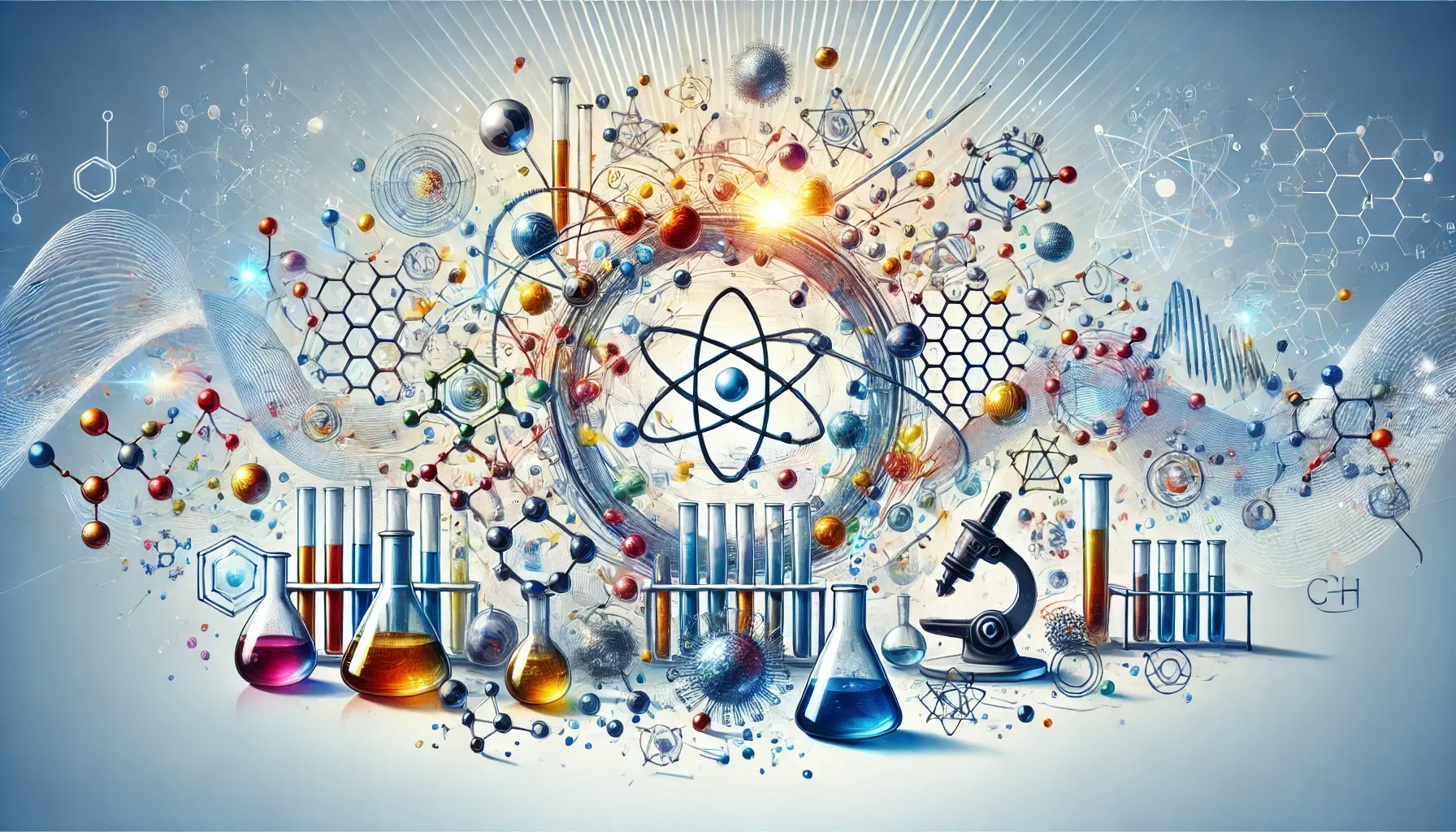🔬 What is Chemistry? A Beginner's Guide to the Science of Matter and Change
Chemistry is often referred to as the “central science” because it bridges other natural sciences such as physics, biology, and geology. At its core, chemistry is the study of matter—anything that has mass and occupies space—and how it changes. From the food we eat, to the air we breathe, to the products we use every day, chemistry plays a critical role in understanding how the world works.
🧪 The Basics of Chemistry
At its most fundamental level, chemistry involves the study of atoms and molecules, which are the building blocks of matter. Understanding how these tiny particles interact and bond with one another is essential to learning how substances form, how they change, and how they behave under various conditions.
Atoms are the smallest units of matter that retain the properties of an element. Elements, like oxygen or gold, are pure substances made up of only one kind of atom. Molecules, on the other hand, are groups of atoms bonded together, and they can consist of one or more elements.
Chemistry is all about chemical reactions—the processes where substances transform into new ones. Whether it's the rusting of metal, the digestion of food, or the combustion of fuel, chemical reactions occur constantly around us, and understanding them allows us to manipulate matter to create new products, energy sources, or medical treatments.
🌍 The Branches of Chemistry
Chemistry is a vast field, and it is divided into several branches, each focusing on different aspects of matter:
- Organic Chemistry: This branch studies carbon-containing compounds. Carbon is the backbone of life, and organic chemistry helps explain the structure and behavior of molecules in living organisms, synthetic polymers, and pharmaceuticals.
- Inorganic Chemistry: Focusing on compounds that do not contain carbon-hydrogen bonds, inorganic chemistry covers metals, minerals, and organometallic compounds.
- Physical Chemistry: This branch explores how matter behaves on a molecular and atomic level, and how chemical reactions occur.
- Analytical Chemistry: The focus here is on analyzing the composition of substances. Analytical chemists use tools to identify and measure elements or compounds.
- Biochemistry: A fusion of biology and chemistry, biochemistry studies the chemical processes within living organisms.
⚗️ Why is Chemistry Important?
Chemistry is everywhere. From the processes in our bodies to the materials that build our cities, chemistry affects almost every aspect of life. Understanding chemistry allows us to:
- Improve Health: Chemistry leads to the development of medicines, vaccines, and treatments for diseases.
- Create New Materials: Chemists develop materials like plastics, synthetic fibers, and metals, transforming industries like construction and electronics.
- Sustain the Environment: Green chemistry helps reduce pollution by developing sustainable materials and energy sources.
🧬 Chemistry in Everyday Life
It might not be obvious, but chemistry is part of our daily routine. Every time you brush your teeth, cook food, take medicine, or breathe, you're engaging with chemistry. Even emotions are driven by chemical reactions involving neurotransmitters in the brain.
🔍 Conclusion
Chemistry is an essential science that helps us understand the world at a molecular level. It not only explains the composition and behavior of everything around us, but also empowers us to innovate and improve the quality of life. Whether you're interested in creating sustainable solutions, advancing medicine, or developing new technologies, chemistry is the foundation that can unlock endless possibilities!
